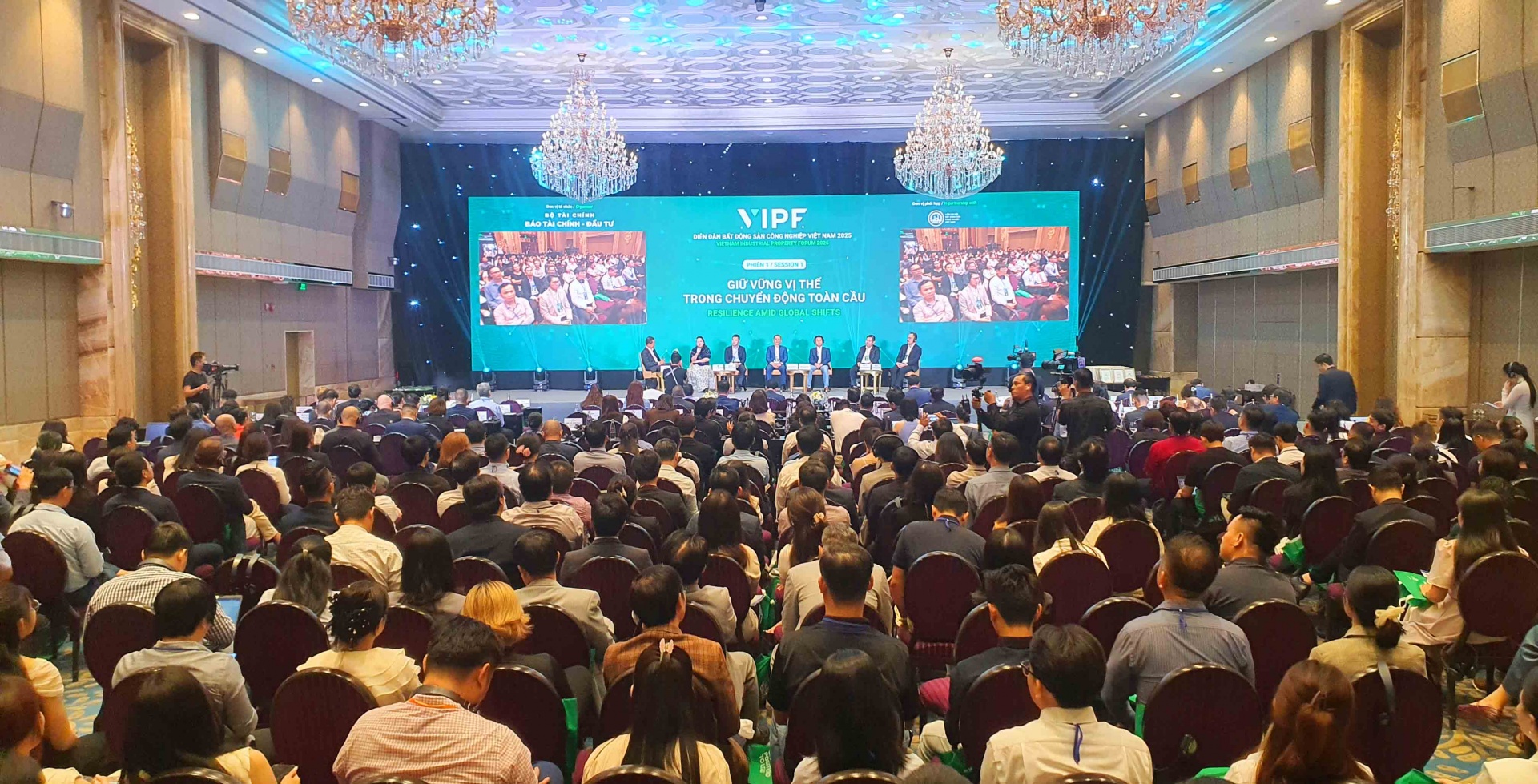 |
A review of Vietnam’s investment legal system over the past nearly 40 years (December 1987–November 2025) highlights the determination of the Party and the state to continuously improve it. The system has evolved in step with each stage of the country’s development and has responded to the complex international geopolitical context of each period.
The Law on Investment has played a key role in this process, reflecting the Party and state’s sustained attention to investment, particularly foreign investment, in Vietnam. It has addressed existing limitations and enabled timely solutions to emerging challenges, strengthening the country’s investment framework.
In August 2019, the Politburo issued Resolution No. 50-NQ/TW, providing strategic guidance to improve institutions and policies and enhance the quality and efficiency of foreign investment cooperation through 2030. The resolution outlines several key viewpoints: it recognises the foreign-invested economy as a vital component of Vietnam’s overall economy, to be encouraged and facilitated for long-term development; it calls for the proactive attraction and selective engagement of foreign investment, with quality, efficiency, technology, and environmental protection as primary criteria; it prioritises projects involving advanced, new, high, or clean technologies, modern governance, high value-add, spillover effects, and integration into global production and supply chains; and it promotes diversification and multilateralisation of investment partners while ensuring national defence, security, social order, and strengthening the economy’s independence and self-reliance.
Resolution 50 illustrates the Party and state’s strategic guidance on investment in general and on attracting foreign capital to Vietnam, adapted to evolving domestic and international contexts.
In practice, creating a legal environment conducive to foreign investment goes beyond revising the Investment Law alone. Vietnam has also expanded and strengthened bilateral and multilateral frameworks by signing numerous agreements to encourage and protect investment with countries, regions, and territories. At the same time, key domestic laws affecting investment – such as the Land Law, Commercial Law, Labour Code, Construction Law, Real Estate Business Law, Housing Law, and Law on Credit Institutions – have been continuously supplemented and refined.
Reviewing and inspecting legal documents that are low in quality or overlapping is crucial to improving the investment legal system, the primary goal of the amended Law on Investment. Several issues should be addressed during the amendment process. The number of legal documents related to investment is substantial and scattered across various laws and sub-law instruments. Some regulations remain unsynchronised, overlapping, contradictory, or even undermine each other’s effectiveness.
The quality of certain normative legal documents is also a concern. Many regulations lack practicality, creating difficulties and complications for businesses and individuals in their production and commercial activities.
At the same time, investment regulations remain unstable due to frequent changes in tax incentives, land policies, and administrative procedures, making it difficult for businesses to forecast performance and plan for the medium and long term.
In the context of the digital economy, new business models leveraging digital technology have gained recognition within the business community. However, regulatory frameworks have not kept pace, while limited financial capacity and a shortage of skilled workers have slowed adoption. Many regulations still rely on paper documents, and the transition to digital or online solutions remains slow and limited.
Policymakers should also consider two additional issues in implementing the current Law on Investment. First, while 100 per cent foreign-owned investment accounts for a large share of inflows – especially given the economy’s recent progress –policies should encourage more joint ventures with domestic firms.
Second, Vietnam should promote outward investment to emerging markets that welcome Vietnamese investment and products. Lessons from countries such as South Korea show that successful socioeconomic development often stems from a combination of domestic and outward investment. This approach would build on the success of Vietnamese enterprises already active abroad, including Viettel, PVEP under Petrovietnam, and Vietnam Rubber Group.
To strengthen the legal system for attracting foreign investment and encouraging overseas investment, the amended Investment Law should address existing shortcomings. This includes reviewing investment legal documents to improve quality and remove inconsistencies with international law, as well as updating international commitments on market access and intellectual property protection.
Promulgating guiding documents for the implementation of laws is essential to help investors understand and comply with regulations, while establishing clear concepts to avoid differing interpretations that could hinder investment. Providing detailed and transparent investment procedures and conditions for foreign investors will create a more supportive environment for investment and ensure effective state management of investment activities.
Maintaining stable investment policies is a legitimate expectation of investors. When changes occur – such as higher land rental fees for projects that already have investment certificates – legal safeguards should ensure investors are protected and avoid confusion over sudden shifts in Vietnamese laws affecting their interests.
In cases where the government must introduce policies that may negatively impact investors, a 'non-retroactive' approach should be applied, or compensation provided for any resulting losses.
 | HSBC projects Vietnam's GDP growth to reach 7.9 per cent in 2025 HSBC has raised its yearly GDP growth forecast for Vietnam to 7.9 per cent for 2025 (from 6.6 per cent), and 6.7 per cent for 2026 (from 5.8 per cent). |
 | SLP charts strategic path through Vietnam’s industrial real estate market SEA Logistics Partners (SLP), an industrial and logistics infrastructure developer, has fared well in the Vietnamese market. Nam Dinh, head of business development and commercial at SLP, spoke to VIR's Thanh Van about the company's development plans. |
 | Vietnam navigates complex landscape to accelerate strategic FDI Vietnam is targeting to become a top destination for strategic foreign direct investment (FDI) by reforming its policies and legal framework and enhancing the quality of its workforce and infrastructure. |
 | FDI disbursement highest in last five years Foreign direct investment (FDI) disbursement was estimated at $21.3 billion in the first 10 months, up 8.8 per cent on-year, the highest value for a ten-month period in the past five years. |

















































